
Ikigai: The Japanese Secret to a Long and Happy Life Book Review

🚀Introduction:
In our fast-paced world, where stress and uncertainty often overshadow our days, the concept of finding purpose and meaning in life can feel elusive. Yet, for the residents of Okinawa , Japan – an island boasting one of the world’s highest concentrations of centenarians – a simple word holds the key to a long and fulfilling existence: “Ikigai.” This book, authored by Héctor García and Francesc Miralles, dives deep into the secrets of Ikigai, offering a roadmap to unlocking happiness and longevity.
👤 About the Book:
Ikigai, which translates roughly to “a reason for being,” is more than just a word; it’s a philosophy deeply embedded in Japanese culture. Published in 2017 by Penguin Life, this international bestseller explores the concept of Ikigai through the lens of the Okinawan people. Drawing on extensive research and interviews with centenarians, the book delves into the secrets of their longevity and happiness, revealing the key role that Ikigai plays in their lives.
✍️ What the Book Contains:
The book is divided into four distinct parts, each offering valuable insights and practical tools for discovering your own Ikigai:
- Part 1: The Ikigai Village: This section introduces the concept of Ikigai and its profound impact on the lives of Okinawan centenarians. We learn about their unique lifestyle, community values, and the importance of remaining active and engaged throughout life.
- Part 2: The Pillars of Ikigai: This part delves deeper into the nine pillars that contribute to a long and fulfilling life, including diet, exercise, healthy relationships, and connection to nature. Each pillar is explored in detail, providing actionable steps and practical advice for incorporating them into your own life.
- Part 3: Finding Your Ikigai: This section guides readers on a personal journey of self-discovery. Through a series of exercises and questions, the book helps you identify your values, passions, talents, and needs, ultimately leading you closer to uncovering your unique Ikigai.
- Part 4: Flow and Ikigai: This final part explores the concept of “flow,” a state of complete absorption in an activity that is often associated with happiness and fulfillment. The authors demonstrate how Ikigai can help us achieve flow, leading to a more meaningful and enjoyable life.
📒 Takeaways from the Book:
Ikigai offers a wealth of valuable insights and practical tools that can transform your life. Here are some of the key takeaways:
- Finding Ikigai is a journey, not a destination: Ikigai is not a fixed state of being, but rather a continuous process of exploration and self-discovery. The book encourages readers to embrace this journey and enjoy the process of uncovering their own unique purpose.
- Small changes can lead to big results: Implementing small changes in your daily life, based on the nine pillars of Ikigai, can significantly impact your overall health and well-being.
- Happiness is found in the present moment: Ikigai emphasizes the importance of living fully in the present moment and appreciating the simple joys of life. This includes practicing mindfulness, connecting with nature, and fostering strong relationships.
- Never stop learning and growing: Ikigai encourages lifelong learning and personal growth. By continuously challenging yourself and expanding your horizons, you can maintain a sense of purpose and fulfillment throughout your life.
Conclusion:
Ikigai is a powerful and insightful book that offers a fresh perspective on happiness and longevity. By exploring the secrets of the Okinawan people and providing practical tools for self-discovery, the book empowers readers to take charge of their own well-being and unlock the potential for a long and fulfilling life. Whether you’re seeking a renewed sense of purpose, a boost to your health and happiness, or simply a deeper understanding of what truly matters in life, Ikigai is a valuable resource that will inspire and guide you on your journey.
Additional Notes:
- The book is written in an engaging and accessible style, making it suitable for readers of all ages and backgrounds.
- The inclusion of real-life stories and anecdotes from Okinawan centenarians adds a personal touch and makes the concepts more relatable.
- The book provides helpful resources and tools, such as worksheets and exercises, to guide readers on their journey of self-discovery.
Overall, Ikigai is a valuable and inspiring book that can help you unlock the secrets to a long and happy life. By incorporating the lessons and insights shared within its pages, you can find your own unique Ikigai and create a life filled with purpose, meaning, and joy.
Browse Categories
- Arts & Photography
- Biographies & Memoirs
- Business & Money
- Children's Books
- Christian Books & Bibles
- Comics & Graphic Novels
- Computers & Technology
- Education & Teaching
- Fitness & Dieting
- Food & Wine
- Hobbies & Home
- Literature & Fiction
- Medical Books
- Parenting & Relationships
- Politics & Social Sciences
- Religion & Spirituality
- Science Fiction & Fantasy
- Scrapbooking
- Sports & Outdoors
- Teen & Young Adult
- Thriller & Suspense
- Uncategorized
Please leave this field empty
Oh hi there It’s nice to meet you.
Sign up to receive awesome reviews, updates and offers on books right in your inbox.
We don’t spam! Read our privacy policy for more info.
Please check your inbox or spam folder to confirm your subscription of our newsletter. Time to get immersed in the word of books.


Ikigai by by Héctor García & Francesc Miralles is book which talks about finding your purpose and then following it with all heart to live a happy and satisfying life. The authors take us in this search along with them and make us understand how people of Japan have been living a long and a happy life.
Are you worried about leading a happy and satisfying life? Or, do you often worry if you are living the true purpose of your life? Or, are you stuck in a job that is not your passion?
If you are looking for the answers, this summary of the book Ikigai is just for you as we are going to address all these queries a few moments from now.
Today we will discuss the book “Ikigai” by Hector Garcia and Francesc Miralles .
Ikigai is a Japanese secret concept that tells you about longevity and happiness. This book tells us how by following the Japanese concept of Ikigai, you can make your life long and happy.
It is a fact that people living on Okinawa Island, Japan, live the longest and happiest life. According to the World Health Organization (WHO), the world’s highest life expectancy record is in their name, but what is their secret?
Its secret is Ikigai, which is a Japanese concept. It means the joy of being busy.
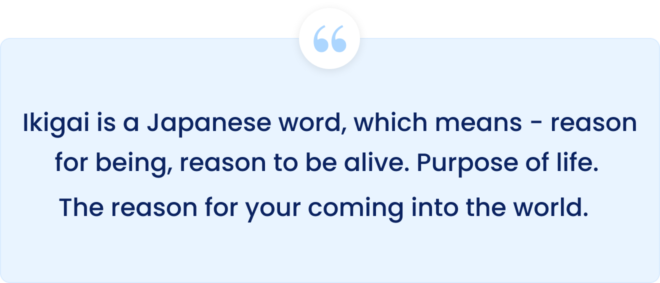
Ikigai is a Japanese word that means – the reason for being, a reason to be alive. Purpose of life. The reason for your coming into the world.
The Japanese believe that every person has at least one Ikigai, which they get after understanding themselves. Ikigai is hard to find.
People’s whole lives go out looking for it. You will be surprised to know that you also have an Ikigai.
Reasons for reading Ikigai
The authors say about Ikigai that this is a concept of our Ikigai, which helps make the body strong so that we can live longer.
Once you feel like you have no clear purpose for living, no matter how healthy your other daily habits may be, your life span can be seriously shortened.
And research has shown that there is a hack in life. Having a goal can prevent the development of genes associated with inflammation in the body, as well as slow down the process of cell death.
Along with this, the authors of this book give us the following reasons:
1. It shows the purpose
It could be as little as finding a better job or looking to buy a home, cooking a special, or passing an exam. But it helps us to be active. Because our goals, no matter how big or small, keep us going, which allows us to be active and happy.
But to start anything, first of all, knowing about it and deciding the purpose is essential, as it is crucial to allocate the time to start health, wealth, or business.
The author tells his story and says that when he became aware of his big goal, he started getting peace and happiness in every small and big work related to it, and every action made him feel that his life would be happy, which is true today.
It also gave peace to his mind that he is living a purposeful and meaningful life. Even though he sometimes got minor failures, focusing on the goal was essential to his happiness.
2. It inspires happiness
We often miss some of the most critical moments we like or need to be in our busy lives. But Ikigai advises that instead of being grateful for them, we should focus more on living those moments the next time we get the chance.
This book gives you tips to imagine in your mind your happy activities, your best moments, present moments and how it looks, and how good you feel in them.
Because we seldom notice that, instead of how well we can do in the present, we keep worrying about the future.
Therefore, taking time out and think about where I am in life, where I want to reach, and the necessary things to do to help human happiness and peace of mind both in the present and future.
3. Happiness lies in simplicity
The people of Japan like simplicity. Many people have made significant inventions, written books, researched, and achieved great success, but they give importance to simplicity in life.
They believe the spirit of being together, an active daily routine, matters for a peaceful, healthy, happy, and long life. Apart from this, the Okinawa residents of Japan also give a mark of kindness.
4. It promotes health awareness
The book Ikigai makes us aware of how to be healthy; it tells us to constantly move the body to be active and to keep it at the moment; you can walk or walk in your row in the office or do your desired activity.
5. It helps in increasing positivity
Apart from this, this book also helps us to stay positive while teaching our desired work and positive thinking.
Find your Ikigai
Here are the 12 steps suggested to find your Ikigai about whom we will talk in detail. Understand every step very carefully because every step can change your life completely.
Step 1: What is the meaning of life?
What is the meaning of your life? This question haunts all of us at some point or the other. Could you take a look at it? If you find the purpose of your life. That purpose of life we are looking for.
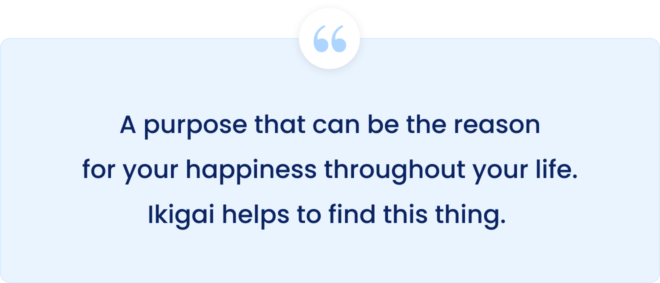
So understand, one will find a reason to wake up in the morning and sleep peacefully at night. A purpose that can be the reason for your happiness throughout your life. Ikigai helps to find this thing.
To find your Ikigai this way, you should ask yourself these four questions:
Question 1: What is love?
This question is probably the easiest. For this, think about what work you like best, which gives you energy, which you enjoy doing. In doing this, you stay energized and energized. This can be anything. Like – painting, singing, cooking, teaching, reading, traveling, or Youtube like me, etc. Any work that attracts you a lot. This could be your office work. Family work can happen. This can be your interest.
Question 2: What are you good at?
What work are you good at? In which work are you an expert? What skills do you have? In which you are already good naturally, or you have an interest in doing and learning it.
It can be different for each one. Therefore, find such a thing in which even if you have a little bit of natural skill, even if there is no perfection, then it will come slowly while doing it.
Question 3: Do you get paid for this?
If you talk only about love and good, then you can like to do anything. But it is optional that for this thing, you should be paid. Maybe you love cleaning the house. But for this thing, no one will pay you. So find some work that the world also needs so that they will pay you in return.
Question 4: What does the world need?
For this, you see, whether the people you like need anything. So what does the world need from these so that their problem can be solved? So that you can solve people’s problems through your favorite work and improve your lifestyle by earning money.
Step 2: Knowing Ikigai and knowing the circle
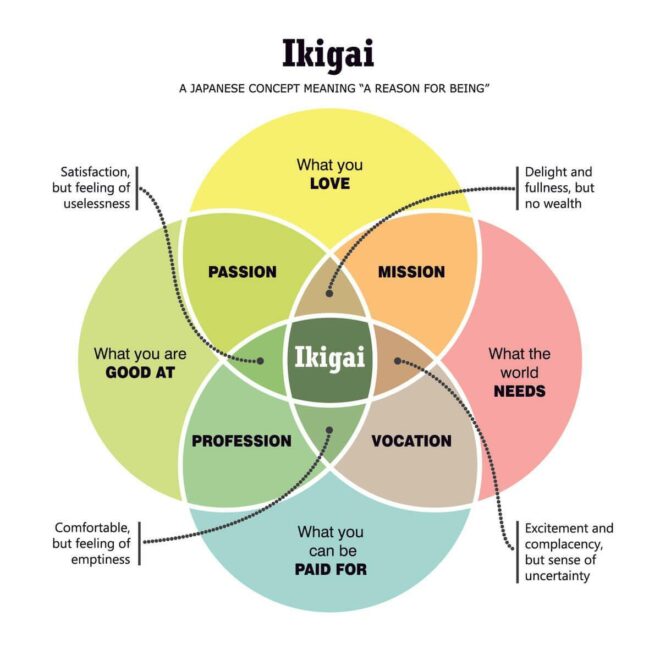
1. Know the Passion
What is expected is called your passion between the first and the second circle. That is, do whatever work you like, in which you are good too. That is called your passion.
2. Professional Circle
Circle between the second and third circles; what is expected is your profession. That is, the work you are good at.
3. Vocation Circle
Between the third circle and the fourth circle, what is expected is your vocation. That is, for whatever work, you can get money. In the same position, if the world even needs it, it can become your vocation.
4. Mission Circle
Between the fourth circle and the first circle, which is expected, is where your mission lies. That is what the world needed. You loved doing the same thing. So that becomes your mission, and both benefit.
In this way, if there is some work you like to do in your life, you are also better at that work than others, then you can get money also. And according to you, people need that work in the world too. So much work is called in Japanese – Ikigai.
To live a happy and fulfilling life, you’ll have to find your Ikigai. And when you see your Ikigai in your life, only then can you live a fulfilling life; otherwise, always in life, something will remain incomplete. And for all this, with all sincerity, you have to find answers to these four questions.
Step 3: How to find your Ikigai?
First of all, make a big square. Then, divide it into four equal square parts.
Write in the first square: I love this work and am also an expert in it. You write all those things in it which you love to do and are an expert in them.
Write in the second square: I like this job but don’t know how to do it well. That is such work that you love very much. But they don’t let you do it. But your heart does too much to make that work.
Write in the third square: Just not my cup of tea. But they have to be done. That is, doing things you don’t like to do. But it has to be done under compulsion. If you don’t like programming, it has to be done to stay in the job and earn money.
Write in the fourth square: Just not my cup of tea. I can’t even do well. What are things that you don’t even like? You are not even his expert. Still, you have to do it under compulsion, like you have to clean your room.
After writing these, you see that in what activities do you spend most of your time? How much time do you spend doing those things?
Which you are good at and you also like. How long do you spend doing something you don’t like? The author recommends doing this because most people spend more time doing work they do not like. That’s why they can’t get their passion. And there is a feeling of incompleteness in life.
Meaning that such people spend more time in the bottom two squares. But to find your passion, you should devote more time to the above two works.
You should spend more time on the above tasks without quitting your job. In these tasks, please focus on the ones you like the most and enjoy doing them too. By which later on, you can earn money too.
And have faith that you will find your Ikigai if you look for it honestly.
Step 4: Four Secrets of long, happy life and healthy living
Some particular habits are included in the life of the people of Okinawa, Japan. Because of this, they live a long, happy, fulfilling, and quality life.
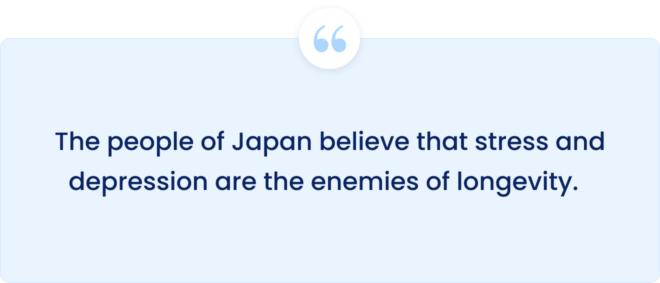
The people of Japan believe that stress and depression are the enemies of longevity. Therefore, stress should always be avoided to lead a happy life.
2. Food and drink
People of Japan never eat full stomach; they always eat only 80% of their hunger. For this, when you eat food, stop eating immediately as soon as your stomach is about to fill. Initially, you may not know when you have eaten 80% of your food, but you will learn as you do it slowly.
In a recent study, it has been found that the people of Okinawa consume an average of 1800 to 1900 calories per day; apart from that:
- The people of Japan eat an average of 18 different types of foods every day.
- Take five servings of fruits and vegetables daily containing different colored capsicum, carrot, spinach, cabbage, potato, legume, and soybean.
- 30% of the calories of the people of Japan come from vegetables only.
- Wheat is the foundation of Japanese people; they eat white rice daily.
- Fish is eaten three times a week.
- Salt is eaten on an average ranging from 7 grams to 12 grams.
- Apart from this, Japanese people also consume green tea and white tea.
3. Doing one thing at a time
Whatever work you do, having focus brings flow to your work so that you can do that work very quickly and without getting tired.
Therefore, always choose the work you have to research; you will have to work hard, and your mind will always have to think so that your focus remains.
We feel that doing more than one thing at a time saves time and can finish more work in less time, but the scientific evidence of doing this is just the opposite.
Research has proved that people who do more than one work at a time finish the work late and are not productive at all while doing that work.
That’s why we should do only one thing simultaneously with complete focus.
Step 5: Ikigai retirement and health lessons
Did you know there is no word like retirement in Japanese? The people of Japan never retire from their work; they keep on working their whole life.
On the other hand, if we talk about other countries, people need early retirement. They should get rid of their work by any means which happens because they do not love their work.
When you do any work forcibly or just for money, then you are not happy with that work. The company you work for also does not get more value from you.
Therefore, to live a long and happy life, you should love your work; then, you will never think of retirement because your happiness will now be in your work and not sitting at home and rusting your body.
If you sit for too long, you will get old sooner. Sitting for a long time may give you physical comfort, but it will damage your cells, and cause food imbalance, hypertension, and even cause cancer.
And to avoid this, you should add these few habits in your daily life:
- Walk for at least 21 minutes daily
- Do not use a lift or elevator
- Participate in social activities so you do not sit in front of the TV for a long time.
- Replace your junk food, and packaged food with good food
- Get good quality sleep, and take 7 to 9 hours of sleep. Do not sleep more than this
- Play with your children or your pet
- In the beginning, you can also set a timer so that you remember that it is time to walk,
- You can also use the app from Google, which gives you the task of walking daily.
Step 6: Focus on Work
It is essential to have focus while doing whatever work you do. Having focus brings flow to your work so that you can do that work very efficiently and without getting tired.
To bring focus and flow to the work, you should follow the mentioned things:
1. Choose the hard work
As we discussed earlier, always choose the work that you have to do research on. You will have to work hard, and your mind should always be thinking so that your focus remains.
Keep in mind that do not choose any such work which is out of your ability and it is so difficult for you to do it that after a few days, you stop doing it. Don’t even do what is easy for you as you will feel bored. Stop doing it.
2. Clear objective
Before starting any work, you should have a clear objective of doing it, what you have to do, when to do it, and why to do it. You should know all these things in advance. There should be a deadline so that you can finish it on time and not postpone it further.
3. Only one task
And as we have known earlier, only one thing at a time.
Step 7: 10 Short rules of success through Ikigai
- Surround yourself with good friends
- Live life at a slow pace
- Do not fill your stomach entirely while eating.
- Make your body in shape
- Be in the present
- Always smile
- Be active, don’t retire
- Connect with nature
- Learn to be grateful
- Find and follow your Ikigai
Step 8: Okinawa elder’s advice

Elders have a lot of wisdom to share with the world from their years of experience. Those of us young can sometimes pretend we know everything, but we should learn essential things about life from generations senior to us, who know better than us.
And at the same time, focus on enjoying life with what you have rather than what’s going wrong or isn’t.
A great way to do this is to connect with everyone around you, even strangers. And that’s what the old-timers in Okinawa suggest: smile and talk openly to everyone you meet.
The friendly attitude that develops from this will help you develop friendships with many people throughout your life.
Okinawa elders also recommend building such loving relationships and maintaining those relationships.
To learn more about making friends, please read the summary of “How to Win Friends and Influence People.” The link is just down below:
How to Win Friends and Influence People
Step 9: Keep moving throughout the day
Okinawa residents suggest you are not required to play a sport or run to be healthy. For this, you can decide on any running work according to your convenience.
Because speed can inhibit consistency from the start, Okinawans try to keep their forms of running exercise simple. Jogging around, days in the garden, or singing for fun are just a few simple ways they go through the bar.
Keeps up the pace. Apart from this, Radio Tasso, a Japanese radio show, has helped Okinawas to exercise for years. It plays tunes in a big station in Japan, and people listen to the directions to exercise.
To maintain body and mind movement, you should also get up in the office for some time and walk in your row or office.
Step 10: Japanese people’s secret to living a long life
Japanese elders share these five secrets to living a long life:
1. They Don’t worry
The secret to a long life is not to worry. And to keep your heart young, don’t let it grow old. Open your heart to people with a friendly smile on your face.
If you smile and open your heart, your grandchildren and everyone else will want to see you. The best way to avoid worrying is to get out and socialize.
Older people in Japan often do this. That’s why they have been able to live so long. According to them, you need to be happy instead of worrying about living a long life.
Spending time with others without causing trouble to anyone and having fun is all that matters.
2. Cultivate good habits
Good habits matter the most for long life. In today’s time, getting up late has become the most significant bad habit.
Your body is not active, due to which your body becomes tired. So, first of all, make a habit of getting up early and doing some work in the morning , which will make your body agile.
Do something that relaxes you. You can run or walk after getting up early in the morning.
You can also do some work at home, like yoga, watering plants, or planting new plants. After this, come home and make breakfast with your hands.
Use green vegetables in your breakfast. Just find your Ikigai no matter what you’re doing. The key to staying sharp in old age is at your fingertips. If you keep your fingers busy, you can live for 100 years.
Remember that if you do not work after getting up in the morning, your body becomes weak. After this, pray to God for your good health and good life.
And do these things consistently every day. Keep in mind – eating vegetables helps you live longer. You need to do three things to live a long time:
- Exercise to be healthy
- Spend time with people.
3. Nurture your friendships every day

Keeping in touch with your friends, keeps adding another year to your life. Because your friends are those people who make you feel happy and memorable.
And being with friends is the most pleasurable thing in life. The people you love are the secret to a long life. To understand the importance of this thing and spend time with friends.
Chatting, drinking tea, and singing with your neighbors are the best things in life. Go to new places with your friends; it will make you happier. The secret of a long life is mixing with people and moving from place to place.
4. Live an incomplete life
For long life, focus on doing ‘slow’ and ’at ease.’ If you are not in a hurry, you will live longer. Many old men in Japan share this secret to live longer.
They wake up early, exercise, and have a good breakfast. And when they get tired after all this, they meet their friends.
Doing many different things every day prolongs your life. Nowadays, people are very busy due to their busy schedules, and sometimes they also become overwhelmed with their work.
But doing so can never increase your life. Therefore, when crushed, focus on one task at a time. By doing this, you can also complete your current work correctly. Remember, the secret to a long life is to go to bed early, rise early and go for a walk.
If you live in peace, enjoy small things, and meet your friends, no one can stop you from living more.
5. Be optimistic
Tell yourself every day, ‘Today will be a day full of health and energy. Live it to the fullest.’ Of course, no matter how old or weak you may feel, tell yourself I still have much to do.
And laugh out loud while saying this. Laughter is the most important thing. Wherever you go, laugh there; it will put you and the person living with you in a good mood.
And you will get the motivation to work. The mood in which you spend your time matters a lot. If you look at the statistics, people who are sad, unhappy, or angry die before people who laugh more and be happy.
So make laughing your priority. Consider yourself lucky to be in this life. Say thank you, and help others; it will give you a feeling of happiness and satisfaction. To live longer is in your hands; embrace it.
Step 11: Logotherapy to Ikigai
People are not happy due to a lack of purpose in their lives. Due to a lack of meaning in life, life does not seem meaningful.
And it becomes the reason for your sadness, which makes it impossible to be happy for a long time. Even many people give up hope and try suicide, which is a big problem. You can use the logotherapy technique mentioned in the book to overcome this problem.
Logotherapy… What is it?
Logotherapy inspires patients to consciously search for their life’s purpose to confront their neurosis. Their search to fulfill their destiny leads them to mental blocks of the past, breaking and overcoming all obstacles that stand in the way.
The process of logotherapy steps can be best understood in these five steps:
- The person feels empty, hopeless, or anxious.
- The therapist shows him that he desires to have a meaningful life.
- By which the patient comes to know his life’s purpose at that particular time.
- He decides to accept or reject his destiny with which his whole life is connected.
- And when the patient finds this new passion. This new passion of his helps him to overcome obstacles and sorrows.
If the person needs help doing this, logotherapy helps him by visualizing the picture. He needs guidance in the search for his life’s purpose and overcoming troubles to move toward his purpose. According to logotherapy, discovering one’s life purpose helps the individual fill that gap.
Step 12: Important lessons
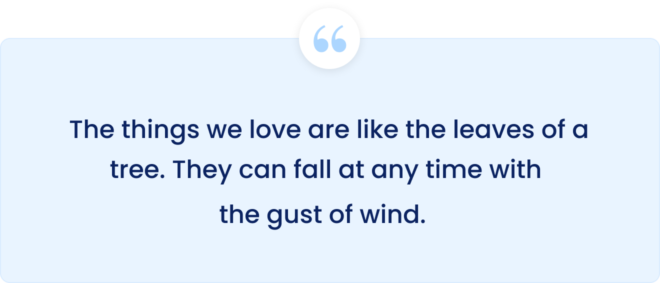
Life lessons from the book:
- An intelligent person should not avoid the pleasures of life but should always be aware that dependence on them can make him a slave to satisfaction. That’s why you should make it a habit to be happy from the heart instead of being prepared for those pleasures which vanish in no time.
- The present is everything that exists, and it is the only powerful thing we can control and through which we can control our today and future life.
- The things we love are like the leaves of a tree. They can fall at any time with the gust of wind. Everything we have, and the ones we love, will eventually disappear. So we have to be aware to be happy with it without being pessimistic about it. We should be happy in the present, which helps us avoid much pain during loss.
- There is no exact plan to connect with our Ikigai. So don’t worry too much about finding it. Just be engaged in what you love while surrounded by people who love you.
- We don’t make meaning of our life; we find it by doing the work we love, so we do the work passionately.
- Each one of us has a unique reason to be alive. Find it and live life to fulfill the purpose of life.
Daily healthy habits:
- Japanese stop eating when their stomach is 80% full.
- Stress is a proven killer. While challenges in life are suitable for keeping the mind and body active, we should focus on solving the fundamental challenges and avoid the rest.
- Take rest. Start slow and keep doing it. Eat well and sleep. Everything is fine. Life is a marathon, not a 100m sprint.
- Keep your mind and body busy.
- People with a clear purpose never retire and stay with their passion till their last breath.
- Smile and meet people.
- Work hard, but on your Ikigai. Work as little as you can on the rest.
- Just get started, and start with the most accessible and most comfortable steps. Keep improving it with time and information.
Eating habits
- Eat everything in a little. Diversity is key. Eat a variety of foods, especially vegetables.
- Apart from this, the people of Okinawas rarely eat sugar. But no sweets or chocolates or negligible, so diseases like sugar are rarely heard in Japan. So to avoid sugar and stay healthy, you should also use this method.
- Eat lots of citrus fruits. They contain chemicals that prevent cancer, diabetes, and obesity.
So, friends, this is the secret of Japanese people’s happiness and healthy living, which is called Ikigai. We learned that more time, energy, and attention should be given to working passionately, adding value to people’s lives with the work you want so that you also work on your passion and people’s problems should be solved. And one should live for it by making a clear goal in life.
I hope you have learned about passion, happiness, and health. Now adopt them in your life and become successful by doing your passionate work.
Ikigai Book Review
So, I hope that you liked the summary of the book “Ikigai: The Japanese Secret to a Long and Happy Life” by Héctor García and Francesc Miralles. I found this book to be a treasure trove of wisdom and inspiration.
“Ikigai” is a Japanese concept that roughly translates to “a reason for being.” It’s the idea that a fulfilling and happy life comes from discovering and pursuing one’s true passion and purpose. This book takes you on a journey through the lives of the inhabitants of Okinawa, a small Japanese island known for its high concentration of centenarians, people who live well into their 100s.
The authors, García and Miralles, expertly weave together a narrative that is both engaging and informative, combining interviews, personal anecdotes, and scientific research. What I found particularly captivating was how they managed to uncover the secrets of the Okinawans’ longevity and happiness, and how these lessons can be applied to our own lives.
One of the key lessons I took away from the book was the importance of having a clear purpose in life. In Okinawa, people are encouraged to discover their “ikigai” early on and dedicate their lives to it. This resonated with me deeply, as I realized that I too needed to find my own “ikigai” and live a more purpose-driven life.
The book also emphasizes the importance of balance in life. Okinawans manage to strike a perfect balance between work, leisure, and social connections. This holistic approach to living was refreshing, as I often find myself caught up in the hustle and bustle of daily life, neglecting important aspects of my well-being.
One of my favorite parts of the book was the practical advice the authors provided for applying the concept of “ikigai” to our own lives. They propose simple yet powerful strategies like fostering a sense of community, staying active, and eating healthily. These are ideas that may seem obvious, but the way García and Miralles present them makes you see their importance with newfound clarity.
The prose is easy to read and engaging, making the book a pleasure to read. The authors’ passion for the subject matter is apparent throughout, and their genuine enthusiasm for the Okinawan way of life is contagious.
In conclusion, “Ikigai: The Japanese Secret to a Long and Happy Life” has had a profound impact on the way I view life and happiness. I highly recommend this book to anyone seeking inspiration, wisdom, or simply a fresh perspective on living a more fulfilling life. It’s a journey that will surely stay with me for years to come.

Similar Books
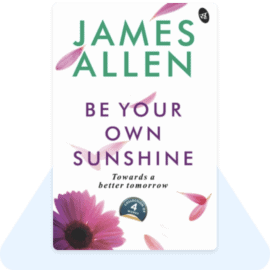
Be Your Own Sunshine
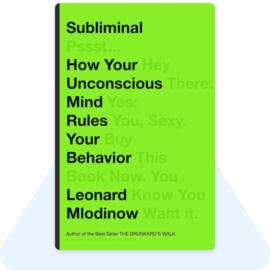
The Art of Dealing with People
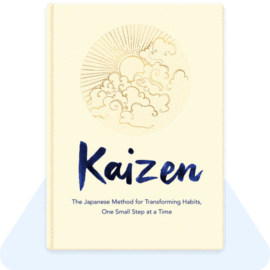
Kaizen - The Japanese Technique
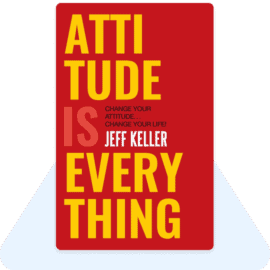
Attitude is Everything
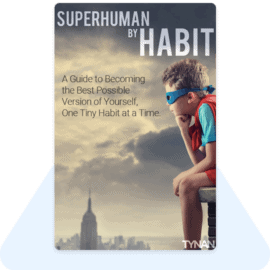
Superhuman by Habit

Mental Diets
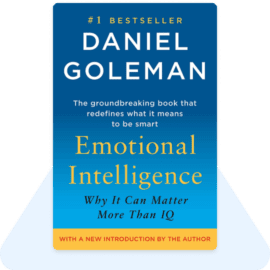
Emotional Intelligence
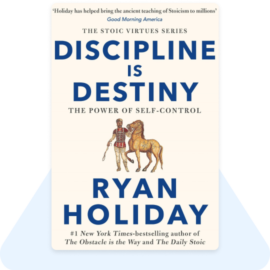
Discipline Is Destiny
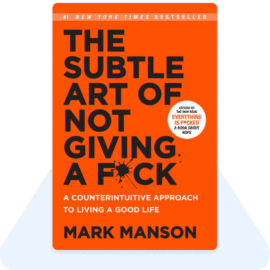
The Subtle Art of not Giving a F*ck
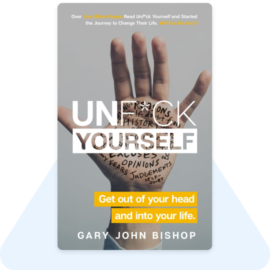
Unfu*k Yourself
173 thoughts on “ikigai by héctor garcía & francesc miralles”.
Day—9–ikigai is complete
Day 9. This book teaches us the Japanese Secret to a Long and Happy Life” explores the concept of Ikigai, which is the Japanese philosophy of finding one’s purpose in life. It provides insights and practical tips on how to identify and pursue your Ikigai, leading to a more fulfilling and satisfying life.
Day 9 book Ikigai This book summary helped me a lot to find the purpose of my life. Stay happy and healthy be happy.thankuuu Amit sir for amazing book summary.
Leave a Comment Cancel reply
Save my name, email, and website in this browser for the next time I comment.
Join Our Free Newsletter and never miss latest book summaries!
- Privacy Policy
- Terms & Conditions
- Affiliate Disclosure

Discovering Purpose: A Review of “Ikigai – The Japanese Secret to a Long and Happy Life”
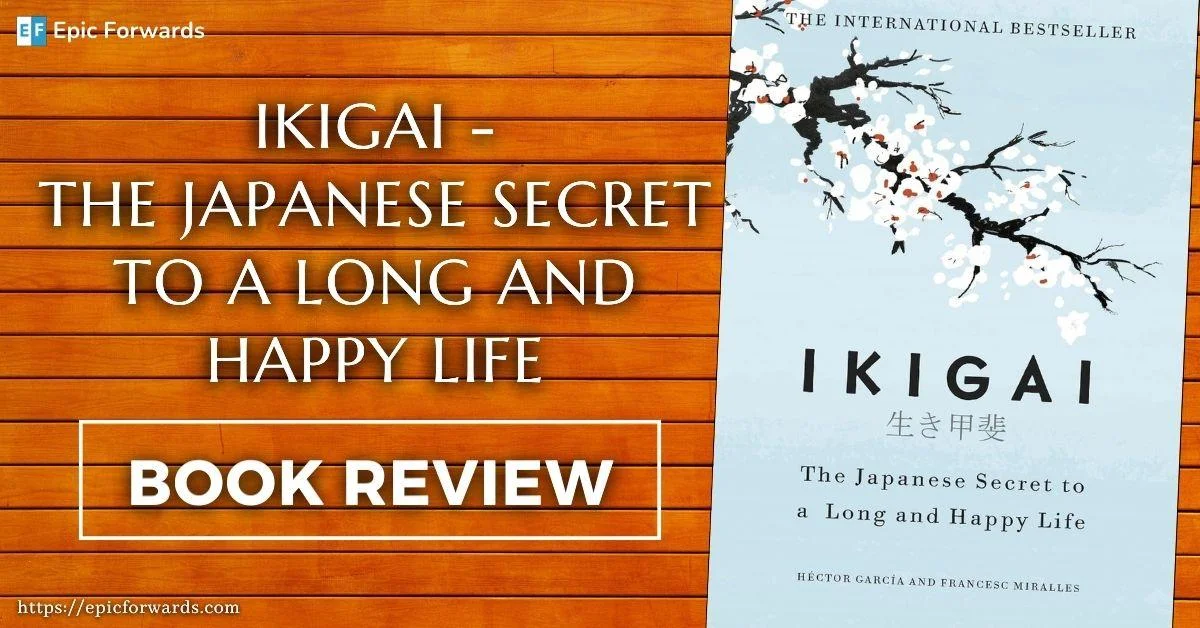
- Post author: James
- Post last modified: July 20, 2024
- Post category: Book Review
- Post comments: 0 Comments

Book Title: “Ikigai – The Japanese Secret to a Long and Happy Life” Author: Francesc Miralles, Héctor García Genre: Self-Help Publication Date: April 2016
Introduction
Embarking on a journey to uncover life’s purpose is a universal quest, and “Ikigai – The Japanese Secret to a Long and Happy Life” is a guide that beckons us to explore the intersection of passion, mission, vocation, and profession.
In this review, we’ll delve into the wisdom of this captivating book and explore how it can help you find your own “ikigai” .
“He who has a why to live for can bear with almost any how.” – From Ikigai
Cracking the Code of Ikigai: A Brief Overview
Published as a collaboration between Héctor García and Francesc Miralles , “Ikigai” draws inspiration from the Okinawan culture, renowned for its longevity and emphasis on finding purpose in everyday life. The book unravels the concept of ikigai, a Japanese term that roughly translates to “a reason for being” , and offers a holistic approach to living a fulfilled and meaningful life.
The Essence of Ikigai: Analysis and Evaluation
The authors weave a narrative that seamlessly blends storytelling with research, cultural insights, and practical exercises. Through compelling stories of centenarians from Okinawa and thought-provoking exercises, “Ikigai” invites readers to reflect on their values, passions, and pursuits that bring joy and fulfillment.
You would also like to read: A Review of “Atomic Habits” by James Clear
Themes and Messages: Navigating the Path to Fulfillment
The central theme revolves around the pursuit of finding one’s ikigai, the sweet spot where passion, mission, vocation, and profession intersect.
The book explores the importance of living in the present moment, fostering strong social connections, and maintaining a healthy lifestyle as key components of a purposeful life.
A Journey into Ikigai: Style and Language
The writing style is both evocative and informative. García and Miralles use anecdotes, metaphors, and concise language to convey profound concepts, making the book accessible to a broad audience. The integration of Japanese cultural wisdom adds a layer of richness to the narrative.
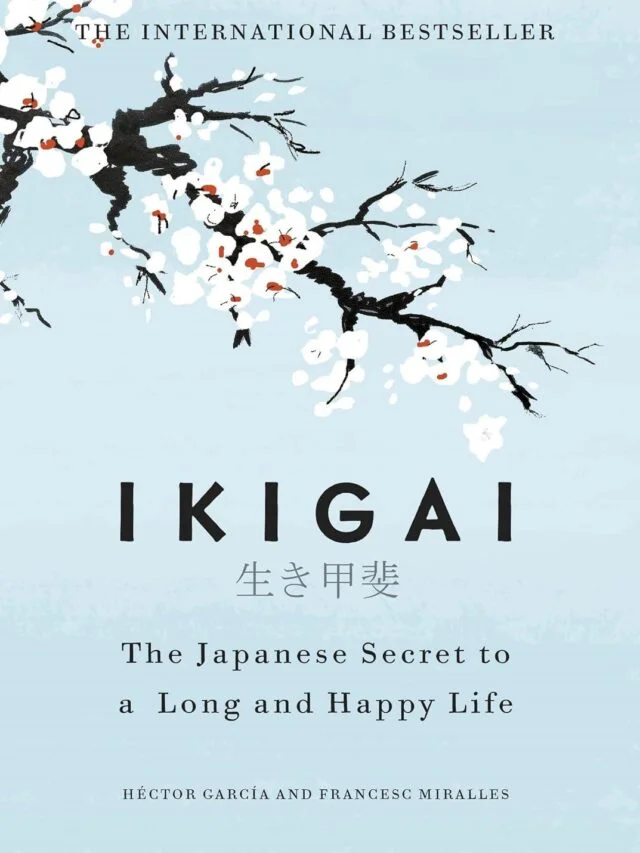
Finding your ikigai is easier than you might think. This book will help you work out what your own ikigai really is, and equip you to change your life. You have a purpose in this world: your skills, your interests, your desires and your history have made you the perfect candidate for something. All you have to do is find it.
Personal Insights: A Quest for Ikigai
On a personal note, the journey through “Ikigai” has been transformative. The exercises prompted introspection, leading me to reevaluate my priorities and align my actions with my values.
The practical wisdom shared in the book has inspired positive changes in my daily life, fostering a deeper sense of purpose.
The happiest people are not the ones who achieve the most. They are the ones who spend more time than others in a state of flow. – From Ikigai
You would also like to read: ‘The Old Man and the Sea’ Book Review
Key Lessons from “Ikigai: The Japanese Secret to a Long and Happy Life”
- Convergence of what you love, what you are good at, what the world needs, and what you can be paid for.
- The sweet spot where these elements intersect is your ikigai.
- Identifying and pursuing your ikigai leads to a more satisfying and fulfilling life.
- Ikigai involves a balance between passion and practicality.
- Ideal life combines doing what you love with finding practical ways to make a living.
- Engaging in activities aligned with your ikigai can lead to a state of flow.
- Flow is associated with happiness and fulfillment.
- Emphasis on a balanced diet, regular physical activity, and strong social connections.
- Contributes to a longer and happier life.
- Building and maintaining strong social connections is crucial for a meaningful and happy life.
- A mindset of continuous learning and personal development is essential.
- Seek new challenges and opportunities for growth.
- Simplifying life and focusing on what truly matters enhances contentment and purpose.
- Being present and mindful in everyday activities helps appreciate small joys and improves well-being.
- Living a life aligned with ikigai may contribute to a longer and healthier life.
Recommendation: A Blueprint for a Meaningful Life
“Ikigai” is not just a book; it’s a roadmap for those seeking a more purposeful and fulfilling life. Whether you’re at a crossroads in your career, searching for passion, or simply yearning for a more meaningful existence, the book provides insights and practical guidance to navigate life’s journey.
You would also like to read: “Wings of Fire” Book Review
Conclusion: Embracing Ikigai for a Richer Life
In conclusion, “Ikigai – The Japanese Secret to a Long and Happy Life” offers a profound exploration of purpose, seamlessly blending cultural wisdom with practical advice. It’s an invitation to embrace a lifestyle that aligns with our values and passions, unlocking the secret to a longer and happier life.
Ready to Discover Your Ikigai? Grab Your Copy of “Ikigai” Here: Get “Ikigai” on Amazon
Meet James, the creative mind behind EpicForwards.com, where he weaves a tapestry of inspiration through quotes from the greats, heartwarming wishing messages, and a celebration of global festivals. Dive into a world where every image, photo, illustration, GIF, and video is not just captivating but also freely available, making every visit an epic journey of visual delights.
You Might Also Like

Heartwarming Simplicity: ‘The Blue Umbrella’ Book Review

Exploring Hemingway’s Masterpiece: ‘The Old Man and the Sea’ Book Review
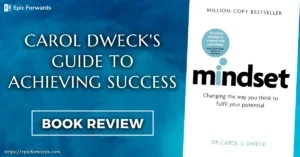
Exploring Success Through Mindset: Carol Dweck’s Key Insights
Leave a reply cancel reply.
Save my name, email, and website in this browser for the next time I comment.
Sign me up for the Newsletter & Upadates!

Strategy Boffins
Book reviews, ikigai: the japanese secret to a long and happy life, once you discover your ikigai, pursuing it and nurturing it every day will bring meaning to your life. the moment your life has this purpose, you will achieve a happy state of flow in all you do., subjects: work life balance.
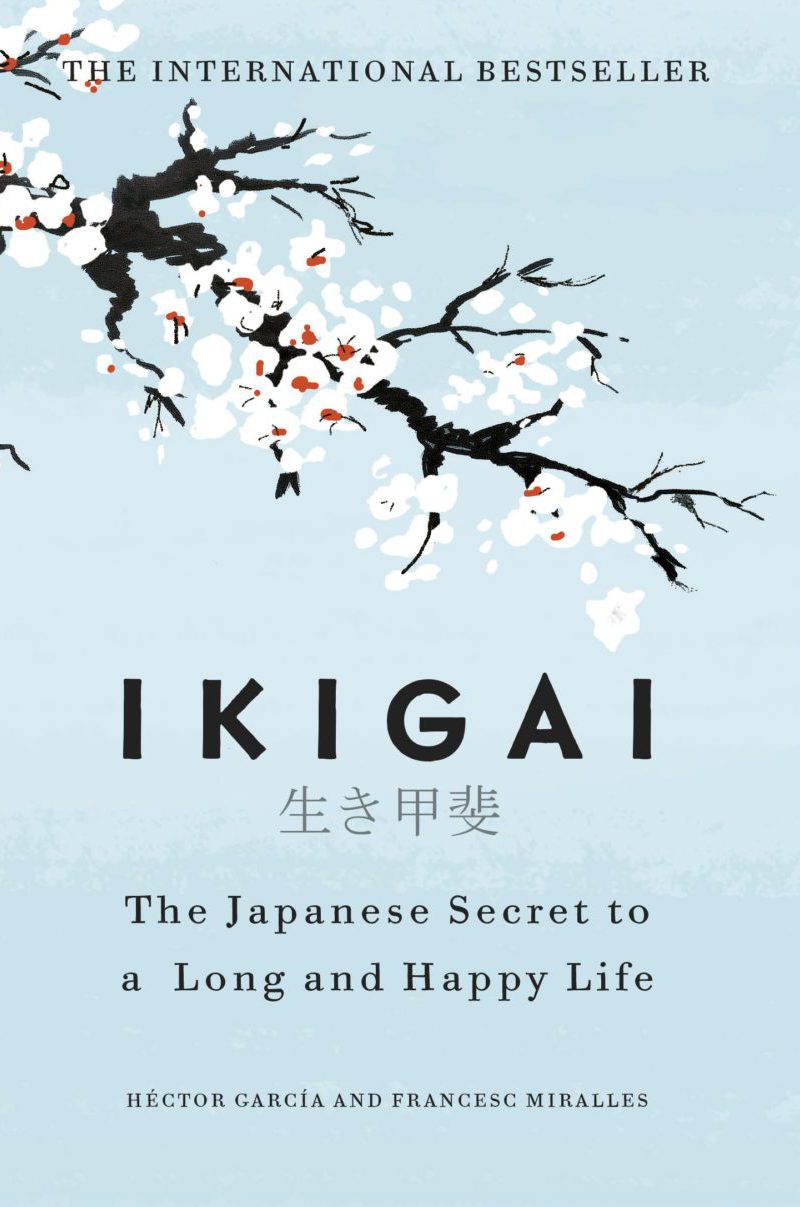
The book Ikigai: The Japanese secret to a long and happy life is divided in four parts – Finding your purpose, Achieving flow, living here & now and little changes one can do in life like diet and exercise.
Finding your purpose through logo therapy by famous Viktor Frankl who wrote Man’s Search For Meaning: The classic tribute to hope from the Holocaust is explained very nicely. Morita Therapy which i personally found very useful is given which is also integral to Ikigai. Morita explained the idea of letting go negative feelings in his book Morita Therapy and the True Nature of Anxiety-Based Disorders
Flow has been pioneered by Csikszentmihalyi in the book Flow: The Classic Work On How To Achieve Happiness: The Psychology of Happiness. Authors Hector Garcia and Francesc Miralles build on the concept of flow through their examples of Takumis, engineers, geniuses, and otakus. A very interesting story of Steve Jobs visiting Takumi in Japan. And the story of Richard Feynman painting walls and soldering circuits reenforces the idea of Flow.
Authors travelled extensively in Japan, and interview many supercentenarian. They have compiled a very impressive list of traditions, rituals, diets, exercises for happiness and logevity – from Yoga to Qingong.
The book ends with resilience and wabi-sabi.
“Wabi-sabi is a Japanese concept that shows us the beauty of the fleeting, changeable, and imperfect nature of the world around us. Instead of searching for beauty in perfection, we should look for it in things that area flawed, incomplete.”
It briefly touches on anti-fragility from the book Antifragile: Things that Gain from Disorder by Nicholas Taleb.
“Life is pure imperfection, as the philosophy of wabi-wabi teaches us, and the passage of time shows us that everything is fleeting, but if you have a clear sense of your ikigai, each moment will hold so many possibilities that it will seem almost like an eternity”
The book is a wonderful read, and takes us right into lives of Japanese people and reasons why they live long, their attention to detail and probably why they don’t mind doing repetitive tasks which is frowned upon in the western world.
Book Review: Deep Work by Cal Newport
Book review: seeking wisdom: from darwin to munger by peter bevelin, book review: the power of habit, book review: boston consulting group on strategy, book review: trading against the crowd, book review: design thinking toolbox, book review: 13 things mentally strong people don’t do, book review: i’m ok–you’re ok, book review: the strategist’s toolkit, book review: strategy beyond the hockey stick, book review: competitive strategy by michael e. porter, book review: reinvent your business model, book review: freakonomics by steven d. levitt, book review: happy money ken honda, book review: emotional intellience daniel goleman, book review: an ugly truth -facebook, book review: the little book of hygge, book review: how the world really works, book review: average is over – artificial intelligence, book review: mastering the market cycle.
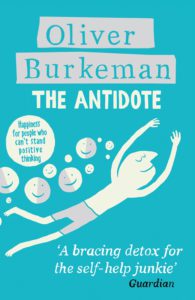
Collections
Captivating.
- What is ikigai?
- About Ikigai Living
- Affiliate Disclosure

Book Review: Ikigai: The Japanese Secret to a Long and Happy Life by Hector Garcia and Francesc Miralles

Ikigai: The Japanese Secret to a Long and Happy Life ” by Hector Garcia and Francesc Miralles is a comprehensive guide to discovering and pursuing one’s ikigai .
The authors conducted extensive research and interviewed many of Japan’s centenarians to uncover the secrets to a long and happy life.
The book offers several major takeaways that can help readers find their ikigai and live a more fulfilling life. These include:
The concept of moai, a sound mind in a sound body, adopting an anti-aging attitude, wisdom words/lessons from japan’s centenarians, the authors explain there are ten rules of ikigai..
The ten rules of ikigai provide a roadmap for living a fulfilling life, and include embracing simplicity, spending time in nature, slowing down, following your passions, and cultivating relationships with others.
Stay active and don’t retire
This rule encourages people to stay engaged in activities that bring them joy and purpose, regardless of their age.
Leave urgency behind and adopt a slower pace of life
This rule emphasizes the importance of slowing down and taking time to appreciate life’s simple pleasures.
Only eat until you are 80% full
This rule is based on the traditional Japanese practice of “ hara hachi bu ,” which encourages people to eat mindfully and in moderation.
Surround yourself with good friends
This rule stresses the importance of relationships and social connections for overall well-being and happiness.
Get in shape through daily, gentle exercise
This rule promotes a regular exercise routine, emphasizing the benefits of gentle movements and mindfulness.
Smile and acknowledge others
This rule encourages people to be more social and to engage with others in a positive way.
Reconnect with nature
This rule highlights the importance of spending time in nature and taking in its beauty and wonder.
Give back to your community
This rule emphasizes the importance of making a positive impact on others and contributing to the world in a meaningful way.
Live in the moment
This rule encourages people to be fully present and to enjoy life in the here and now.
Follow your ikigai
This rule is the most important of all, reminding people to always follow their passions, missions, vocations, and professions and to stay true to their purpose in life.
These takeaways are presented in a clear, concise, and engaging manner, making it easy for readers to understand and incorporate them into their own lives. The authors also offer practical exercises and suggestions to help readers find their ikigai and pursue it with purpose and joy.
Overall, “Ikigai: The Japanese Secret to a Long and Happy Life” is an inspiring and transformative book that provides readers with the tools they need to live a more fulfilling and happy life.
Share this:
Similar posts.

7 Best Ikigai Books to Live a Happy Life
Seven of the best books that deeply explore the significance of ikigai in Japanese culture,...

Book Review: The Little Book of Ikigai by Ken Mogi
One of the best books on Ikigai! A must-read if you want to know the...

31 Amazing Japanese Kit Kat flavors that you have to try!
Yes, the rumors are true! The familiar chocolate treat has been taken to the extreme...

Book Review: How to Ikigai: Lessons for Finding Happiness and Living Your Life’s Purpose by Tim Tamashiro
Finding your ikigai is like gaining a superpower, a GPS for your life. The book's...

Book Review: My Little Ikigai Journal: A Journey into the Japanese Secret to Living a Long, Happy, Purpose-Filled Life by author Amanda Kudo
Delve into a journey of self-discovery and purpose through thought-provoking questions, inspiring exercises, and uplifting...

Book Review: Ikigai: The Japanese Art of a Meaningful Life by Yukari Mitsuhashi
Amazing read guiding us to examine all aspects of our lives and appreciate the beauty...

COMMENTS
Browse & discover thousands of brands. Read customer reviews & find best sellers. Free shipping on qualified orders. Free, easy returns on millions of items.
📒Takeaways from the Book:. Ikigai offers a wealth of valuable insights and practical tools that can transform your life. Here are some of the key takeaways: Finding Ikigai is a journey, not a destination: Ikigai is not a fixed state of being, but rather a continuous process of exploration and self-discovery. The book encourages readers to embrace this journey and enjoy the process of ...
Ikigai Book Review. So, I hope that you liked the summary of the book "Ikigai: The Japanese Secret to a Long and Happy Life" by Héctor García and Francesc Miralles. I found this book to be a treasure trove of wisdom and inspiration. "Ikigai" is a Japanese concept that roughly translates to "a reason for being."
Read 4,845 reviews from the world's largest community for readers. 3 Books Collection Set: Ikigai: ... The Danish word hygge is one of those beautiful words that doesn't directly translate into English, but it more or less means comfort, warmth or togetherness. ... My general review is that each book offers tips and suggestions on how to cope ...
Introduction. Embarking on a journey to uncover life's purpose is a universal quest, and "Ikigai - The Japanese Secret to a Long and Happy Life" is a guide that beckons us to explore the intersection of passion, mission, vocation, and profession.. In this review, we'll delve into the wisdom of this captivating book and explore how it can help you find your own "ikigai".
Ikigai: The Japanese Secret to a Long and Happy Life by Héctor García and Francesc Miralles. The Book in 3 Sentences. The book argues that the reason why Japanese people live the longest in the ...
Ikigai is like a condensed version of The Blue Zone, more focused on Ikigai, and Okinawa, Japan. It also lacks the case studies that The Blue Zone offers. You should read whatever you prefer.
The book emphasizes that finding your Ikigai is a journey, not a destination. By actively engaging with these prompts and exercises, you can gain valuable insights into your purpose and move ...
The book Ikigai: The Japanese secret to a long and happy life is divided in four parts - Finding your purpose, Achieving flow, living here & now and little changes one can do in life like diet and exercise.. Finding your purpose through logo therapy by famous Viktor Frankl who wrote Man's Search For Meaning: The classic tribute to hope from the Holocaust is explained very nicely.
The authors also offer practical exercises and suggestions to help readers find their ikigai and pursue it with purpose and joy. Overall, "Ikigai: The Japanese Secret to a Long and Happy Life" is an inspiring and transformative book that provides readers with the tools they need to live a more fulfilling and happy life.
About the book. IKIGAI is anything that provides you a purpose in life, which keeps you going, which motivates you to wake up early, or which makes you happy. A small town in Japan, known as Ogimi has the highest life expectancy in the world. This town, their lifestyle, and in general, the overall lifestyle of the Japanese people led to the creation of this book.